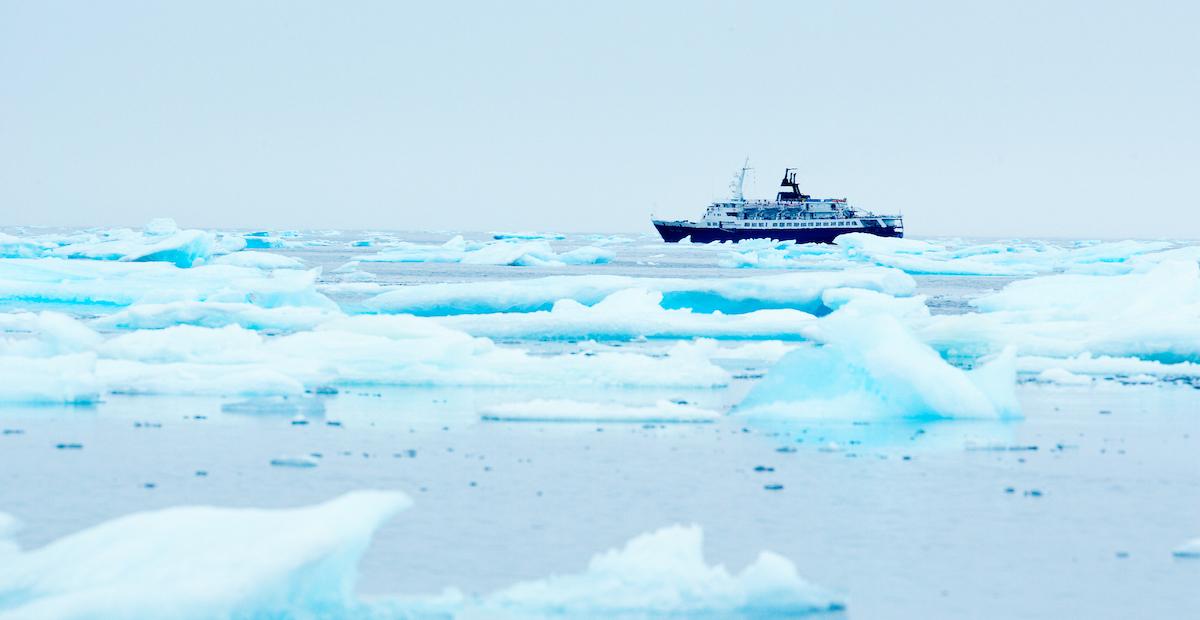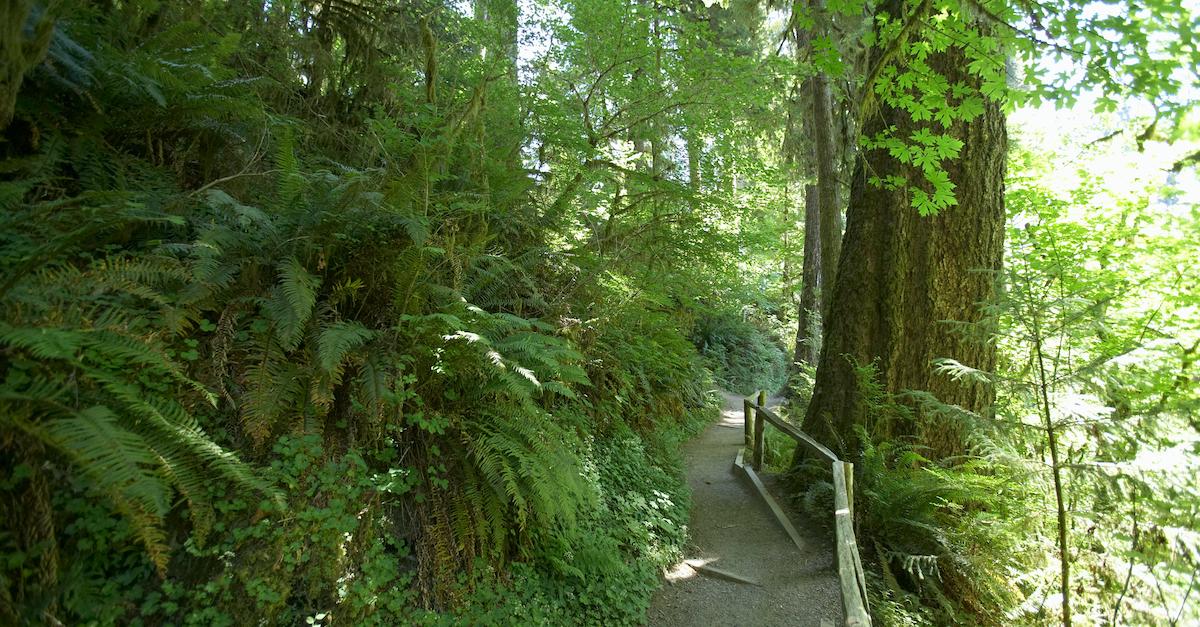You've Heard of the Arctic Tundra, but What Is the Arctic Rainforest?
Updated Jan. 21 2021, 11:30 a.m. ET

When the Arctic comes to mind, most think of a frozen tundra with snowy plaines, glaciers, polar bears, and other types of cold weather wildlife. But does the Arctic have a rainforest? Scientists have revealed that layers beneath the ice, there may be a frozen rainforest from hundreds of years ago.
"Until recently people have thought of glaciers and ice sheets ... as being relatively lifeless places," Joseph Cook, a British glaciologist, told CNN. "But when you look under a microscope, the Greenland ice sheet in particular, and other glaciers, reveal themselves to be a frozen rainforest of biodiversity."

Does the Arctic actually have rainforests?
Rainforests are most commonly found in Southern parts of the world — the world's largest rainforest, the Amazon, is located in South America, while Southeast Asia and Australia are also home to various rainforests. However, it turns out there may be a different type of ancient rainforest in the Arctic — according to CNN, Cook took a microscope and looked beneath the ice. There, he discovered a wide range of microscopic life forms that live beneath the ice.
Although it's not an actual rainforest, these microbes are actually algae blooms, which researchers such as Cook say may be causing the ice to melt faster than before. And unfortunately, Cook — among other scientists — estimates that the results will be irreversible.
"These algae, like [wearing a black T-shirt on a hot day], is causing it to warm up in the sun and melt faster," Cook explained, as per CNN.
More on the algae blooms, below.
Although there are currently no living rainforests in the Arctic, there were millions of years ago.
According to new research, the Arctic was a thriving rainforest about 50 million years ago. As explained by Inverse, studies conducted by the Chinese Academy of Sciences in Beijing and the University of Colorado showed that winter temperatures tended to remain above freezing, while summer temperatures clocked in around 70 degrees Fahrenheit. Like Alaska and parts of Canada, there were months of darkness in the winter, 24/7 sunshine in the summer, and ample plant life.
This hypothesis was officially confirmed when researchers found the toe bone of a Gastornis, a now-extinct 6-foot-tall flightless bird that weighed hundreds of pounds. The discovery also led researchers to believe that Greenland was once a lush rainforest, too, inhabited by a wide range of fish, crocodiles, turtles, primates, and other giant prehistoric birds.

Antartica was also a rainforest millions of years ago.
The Arctic's southernmost counterpart, Antartica, was also believed to be a rainforest at one time, as per Live Science. Fossil roots, pollen, and spores discovered there last year showed that it was actually a temperate rainforest, which is a similar biome to Washington State's Olympic National Park, as per the National Park Service — moderate temperatures, a moist climate, and quite a bit of greenery.
Remains of the former rainforest were discovered by a team of researchers within a seabed in West Antartica back in 2017. The layer of life they found beneath the ice was unlike anything researchers had ever seen.
"It clearly differed from the layers above it," study lead researcher Johann Klages, a geologist at the Alfred Wegener Institute Helmholtz Centre for Polar and Marine Research in Bremerhaven, Germany, said, as per Live Science.
Although the discovery of algae beneath the ice's surface is truly fascinating, it bodes poorly for the well-being of our ice caps. We're clearly running out of time to save them from irreparable damage.